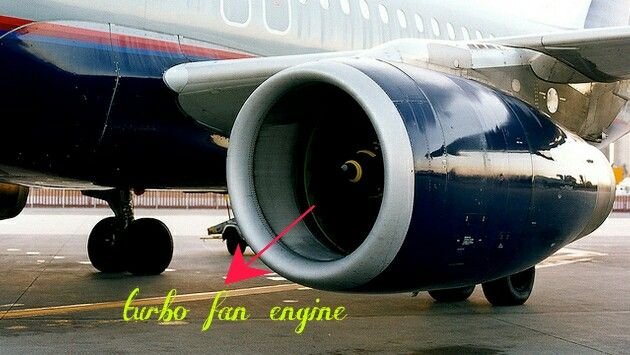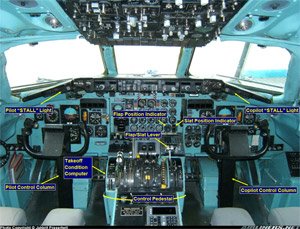Have you ever wondered what makes an airplane move forward or better still what makes it remain in the air?
Here are some tips..
Firstly we have "thrust"
Thrust makes an airplane move forward, to produce this "thrust" a turbo fan engine is used.
When the airplane is on motion, the relative flowing air over the wings will produce a lift force as explained in the previous post. Lets have a look at the wings 
The wings of an airplane has a different parts & components
*slat
*aileron
*flap
*elevator
*rudder
*spoiler
During a take off the flap and slat are extended downwards by the pilot, these increases the curvature of the wings and airfoil, as the wing area and curvature are increased, airflow will be deflected more, then a greater lift force can be derived even at low airplane speed and as the airplane speed increases the lift force rises too, when the lift force overcomes the gravitational force the plane takes off. When the it gets to a considerable height (normal ℉) the slat & flaps are returned to its usual position.
In navigation the need for "aileron" "elevator" & rudder comes in, the pilot uses them alone or all together depending on the situation. Assuming the pilot wants to descend the airplane,he just lowers the elevator, these will deflect the airflow which produces a lift force & results a moment which makes the nose of the plane to go down, if the need for ascending comes he just do the riverce. The rudder also enables the airplane to change its part.
The control of all these devices (flap, slat, rudder & elevator) are done from the cockpit control using the flyby wire system (FBW)
During landing the increase of drag will be required, for this purpose flap and slat are activated again because they has drags and raising capabilities. Another attachment called "spoiler" is activated to increase the drag too which reduces lift force and enable the plane to land safely.
Sort: Trending